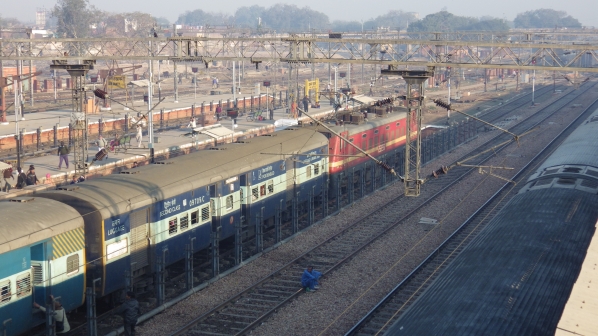A high-powered inter-ministerial committee headed by Policy Commission chairman, Mr Amitabh Kant, has recommended a 35-year contract for private operators, while suggesting services should begin within six months of the contract award.
The private services - which will fix their own tariffs - are expected to operate on the mainline trunk routes connecting Delhi - Mumbai and Delhi - Kolkata. IR expects to receive Rs 220bn ($US 3bn) in revenue through haulage charges and other services from the proposal.
The move comes after the Indian Cabinet sanctioned the merger of the eight existing railway services into a single Indian Railways Management Service (IRMS) on December 24. The structural reform move is indicative of Mr Narendra Modi’s government’s willingness to privatise rail operations.
As part of the planned merger, the eight-member railway board will be reduced to four members sitting alongside the chairman, who will also act as the organisation’s CEO. Stakeholders and private players will be included on the board in an ad-hoc manner.
After assuming office in 2014, the Modi government undertook a series of measures designed to reduce government control of IR such as the merger of the separate railway budget into the general budget and moves to empower the zonal general managers with greater administrative and financial powers.
With the powers of the railway board substantially curtailed, the government’s task of implementing the privatisation agenda has become easier, says former general manager, Mr A K Jain.
Last year, IR allowed the Indian Railways Catering and Tourism Corporation (IRCTC), an IR public sector undertaking, to run two private services on an experimental basis on the Delhi - Katra and Delhi - Lucknow lines.

